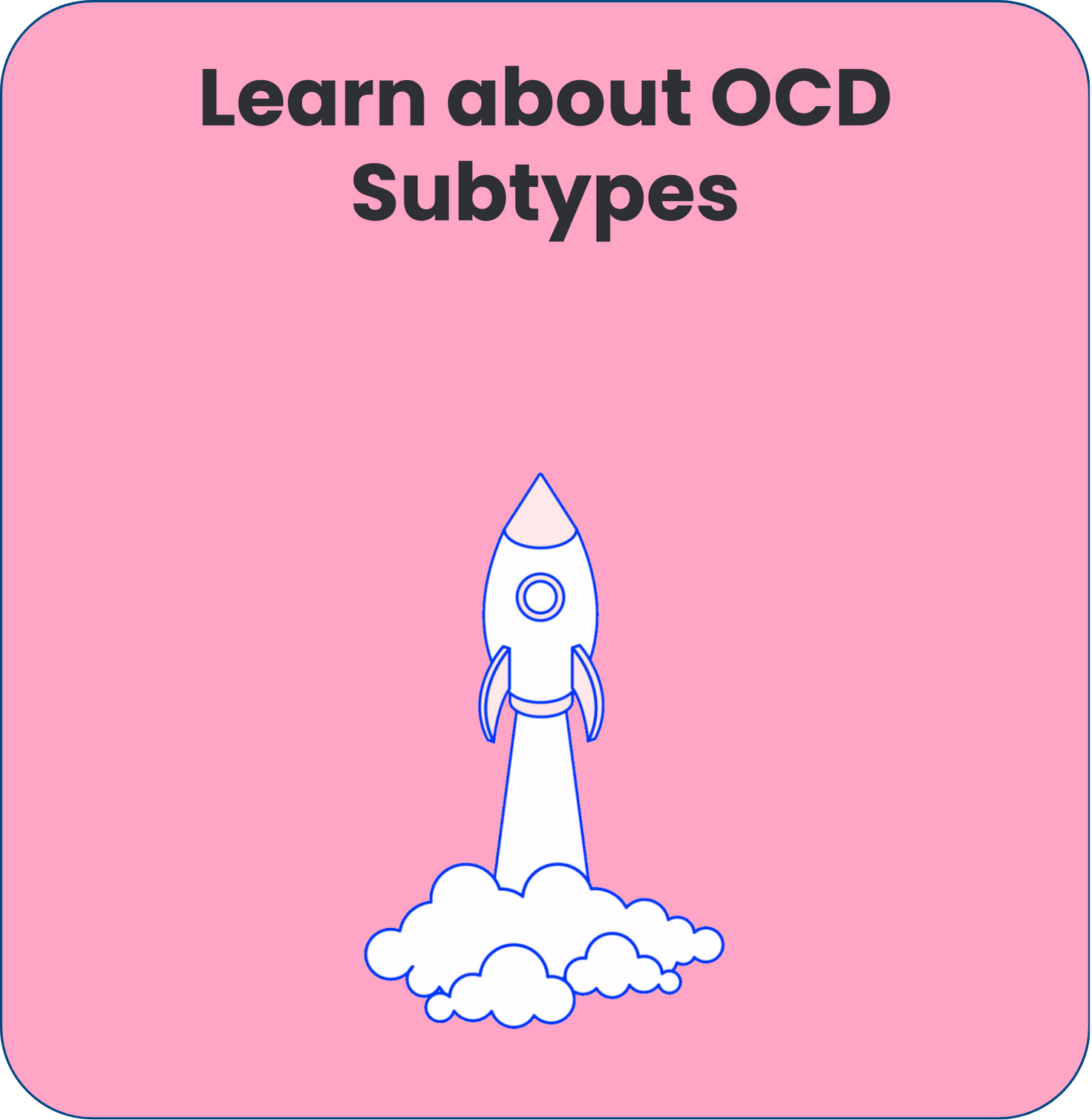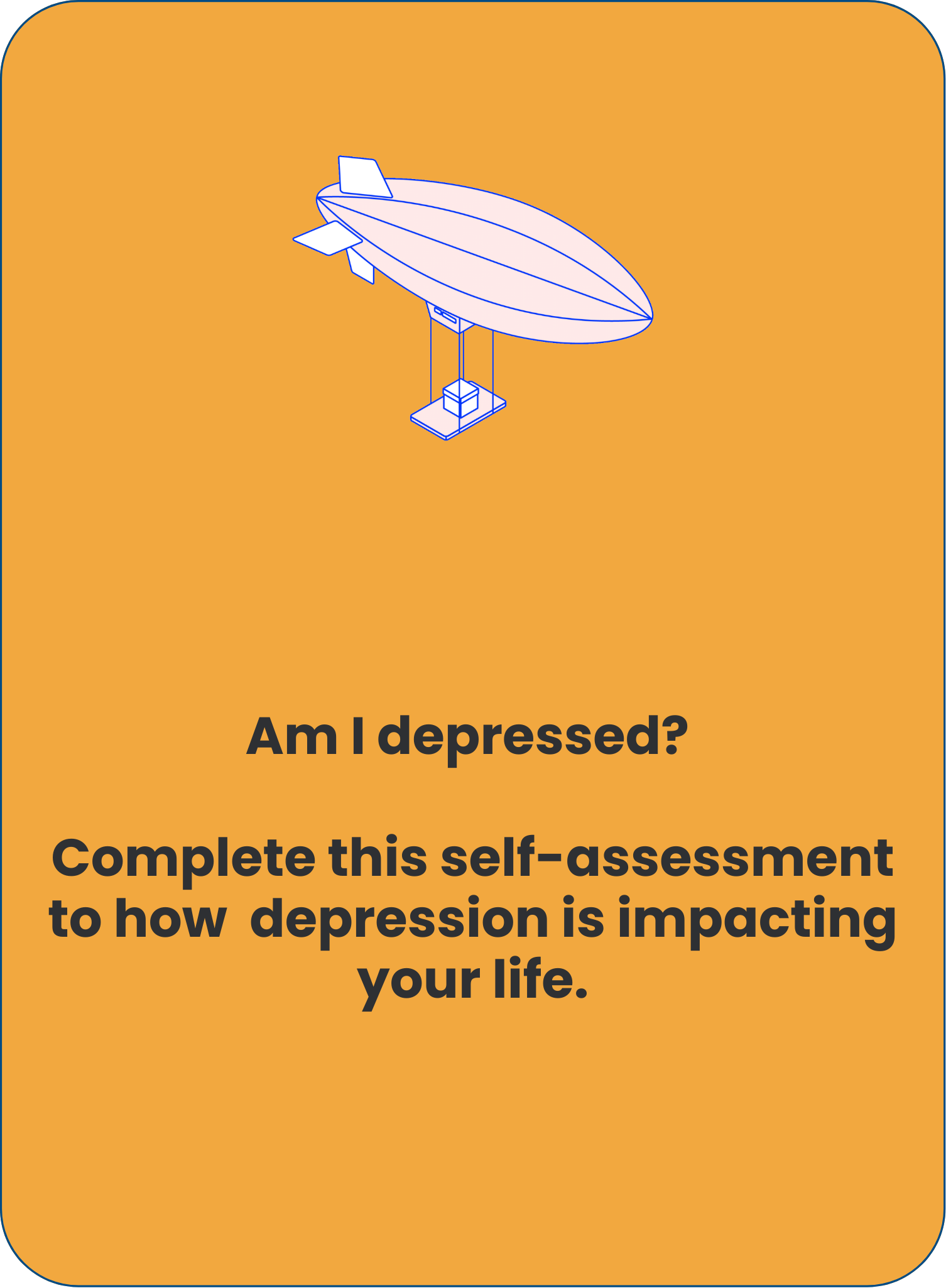OCD Therapist in Houston, TX.
Take the OCD Self-Assessment
OCD Self-Assessment Info
Effectively managing OCD symptoms is crucial for your daily functioning and overall quality of life. Your ability to handle obsessions and compulsions acts as a foundation, enabling you to make decisions, take actions, and fully engage in your daily activities without being constantly derailed by intrusive thoughts or rituals.
When OCD symptoms become overwhelming, it's essential to address them appropriately. If left unchecked, excessive obsessions and compulsions can lead to detrimental behaviors such as spending hours performing rituals, avoiding triggering situations, or constantly seeking reassurance—actions that can significantly impact your personal life, relationships, and overall well-being.
Moreover, if OCD symptoms are not properly managed, you might find yourself disengaging from activities you once enjoyed, lacking motivation to pursue personal goals, or feeling disconnected from your aspirations. This can hinder your personal growth and prevent you from reaching your full potential in various aspects of life.
Reflecting on your experiences with OCD can help you assess how much these symptoms are affecting your daily life, relationships, and overall well-being. Consider how often intrusive thoughts occur, how much time you spend on compulsions, and how these impact your ability to function in work, social, and personal contexts. Who gets OCD?
Please note, while self-reflection can be helpful, it is not a substitute for professional diagnosis or treatment. OCD is a complex condition that requires proper assessment and care. If you're consistently struggling with obsessions and compulsions that interfere with your daily life, it's important to reach out to a mental health professional who specializes in OCD for a proper evaluation and tailored treatment plan.
Remember, OCD is a treatable condition. With appropriate support and evidence-based treatments like Cognitive Behavioral Therapy (CBT) and Exposure and Response Prevention (ERP), many people with OCD experience significant improvement in their symptoms and quality of life.
Instructions for the OCD Quiz:
This Quiz is Designed to Help You Identify Potential Areas Where OCD Symptoms May Be Impacting Your Daily Life and Well-being
Answer each question based on your experiences and behaviors in various aspects of your life over the past two weeks.
Consider your typical day, interactions with others, and overall feelings when responding.
Please ensure all fields are completed to receive a comprehensive assessment of your current OCD symptom levels.
Your honest responses will help pinpoint specific areas where OCD-related thoughts and behaviors might be affecting you the most.
Take note of any patterns in your responses, such as recurring themes or situations that trigger OCD symptoms.
Remember, this quiz aims to give you insights into your OCD symptoms and is not a substitute for professional diagnosis or treatment. Use the results as a starting point for reflection on your mental health and potential areas where you might benefit from additional support or coping strategies. If you have concerns about your symptoms, please consult with a qualified mental health professional.
REVIEW YOUR QUIZ SCORE
Do You Have Signs of having OCD?
Review your OCD symptom quiz results and reflect on these common emotional and behavioral symptoms that might indicate challenges related to OCD:
Behavioral Indicators of OCD:
Excessive Checking – Repeatedly checking locks, appliances, or other items due to intrusive thoughts about safety or catastrophic events.
Ritualistic Behaviors – Engaging in specific routines or rituals that must be performed in a particular way or a set number of times.
Avoidance – Steering clear of certain situations, places, or objects that trigger obsessive thoughts or compulsive behaviors.
Seeking Reassurance – Frequently asking others for reassurance about fears or doubts related to obsessive thoughts.
Time-Consuming Compulsions – Spending excessive amounts of time on compulsive behaviors, leading to difficulties in daily functioning.
Perfectionism – Striving for flawlessness in tasks or arrangements, often redoing things until they feel "just right."
Mental Rituals – Engaging in repetitive mental acts like counting, praying, or repeating phrases silently to neutralize anxious thoughts.
Hoarding – Difficulty discarding items due to obsessive fears about needing them in the future or causing harm by throwing them away.
Excessive Hand Washing – Washing hands frequently or for prolonged periods due to contamination fears.
Difficulty Making Decisions – Overthinking choices due to fears of making the wrong decision or potential negative consequences.
These emotional, behavioral, and physical symptoms can be signs that OCD is significantly impacting your daily life and overall well-being. If you're experiencing several of these symptoms regularly, it may be beneficial to seek support from a mental health professional who specializes in OCD treatment. Remember, effective treatments are available, including Cognitive Behavioral Therapy (CBT) with Exposure and Response Prevention (ERP), which can help manage OCD symptoms and improve quality of life.
Physical Indicators of OCD:
Skin Irritation – Raw or chapped skin from excessive hand washing or other cleaning rituals.
Fatigue – Exhaustion from carrying out time-consuming rituals or due to sleep disruptions caused by intrusive thoughts.
Muscle Tension – Physical tension, particularly in areas like the jaw, neck, or shoulders, due to constant anxiety and stress.
Headaches – Frequent headaches that may be triggered by stress, overthinking, or mental rituals.
Digestive Issues – Stomach aches or other digestive problems related to anxiety and stress from OCD symptoms.
Sleep Disturbances – Difficulty falling asleep or staying asleep due to intrusive thoughts or the need to perform rituals before bed.
Increased Heart Rate – Heart palpitations or rapid heartbeat during particularly anxious moments or when resisting compulsions.
Sweating – Excessive sweating, especially during anxiety-provoking situations or when attempting to resist compulsions.
Trembling or Shaking – Physical manifestations of anxiety, particularly when faced with triggering situations.
Shortness of Breath – Feeling out of breath or experiencing shallow breathing during moments of intense OCD-related anxiety.
Follow Up To The OCD QUIZ
Learn More About Managing OCD:
We all face challenges with intrusive thoughts and compulsive behaviors at times, but when these feelings become overwhelming, they can significantly impact our daily functioning and well-being. If you've made it this far, the OCD symptom quiz likely confirmed what you already suspected—you might be struggling with certain aspects of managing OCD. The good news is that you're not alone, and there are effective strategies to address this, regardless of your age.
Common Challenges Related to OCD:
Health Anxiety – Excessive worry about personal health or the health of loved ones, often leading to frequent medical check-ups or avoidance of healthcare.
Hoarding Tendencies – Difficulty discarding possessions, which can create unsafe or uncomfortable living conditions.
Rigid Routines – Strict adherence to daily routines or rituals, which can interfere with social activities and relationships.
Checking Compulsions – Repeatedly checking if tasks were completed, exacerbating OCD symptoms and consuming significant time.
Contamination Fears – Excessive worry about germs or contamination, leading to time-consuming cleaning rituals or avoidance behaviors.
By recognizing these challenges, you can start taking steps toward better OCD management and improving your overall quality of life.
Read more about effective strategies for managing OCD in my resources section. Remember, addressing OCD is crucial for both your mental health and overall well-being. Consider discussing your concerns with your healthcare provider or a mental health professional specializing in OCD, as many treatment options are available and can be tailored to your specific needs.
Managing OCD can be challenging, but support is available. Whether through specialized therapy, support groups, or medication management, taking proactive steps can help you address OCD symptoms and improve your quality of life.
Various OCD management techniques, such as Cognitive Behavioral Therapy (CBT) with Exposure and Response Prevention (ERP), mindfulness practices, and relaxation exercises, can be particularly effective in helping you cope with OCD symptoms and maintain a healthier, more balanced life.
Learn more about resources available for addressing OCD and developing more effective management skills:
Mental Health Services: Seek out mental health professionals who specialize in treating OCD.
OCD Support Groups: Join support groups for individuals dealing with OCD to share experiences and coping strategies.
Occupational Therapy: Consider working with an occupational therapist to develop strategies for managing daily tasks affected by OCD.
Cognitive Training: Engage in activities that promote cognitive flexibility and problem-solving to help manage OCD symptoms.
Family Education Programs: Involve family members or loved ones in education about OCD to foster a supportive environment.
Transcranial Magnetic Stimulation (TMS) to treat OCD symptoms
Remember, seeking help for OCD is a sign of strength and commitment to your well-being. Don't hesitate to reach out to your healthcare provider or a mental health professional if you're experiencing persistent OCD symptoms. It's never too late to improve your quality of life and find relief from OCD.






